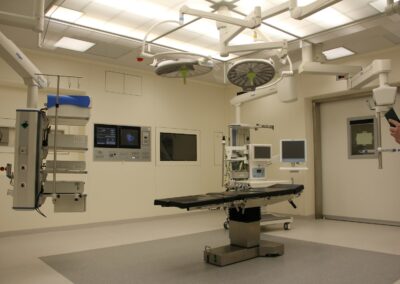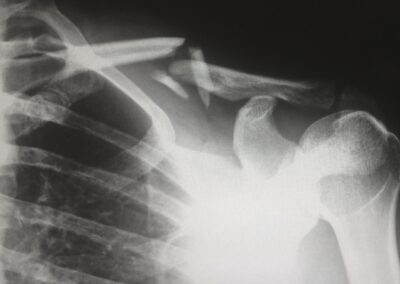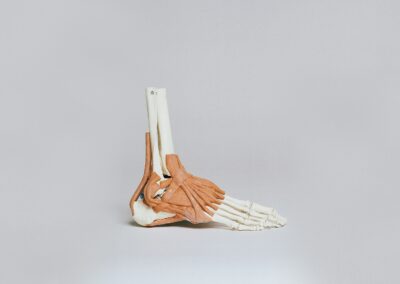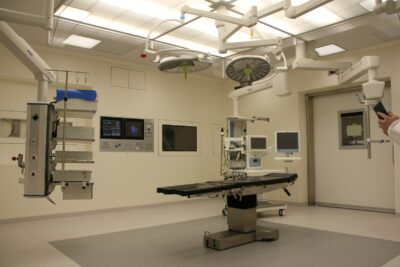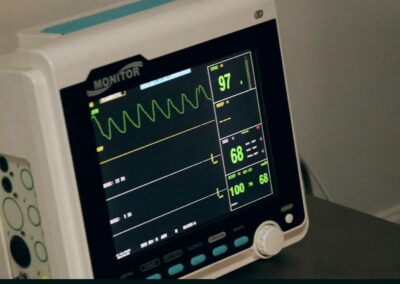Revolutionizing Surgery with Digital Twin Technology
Introduction to Digital Twins in Surgery
Digital twins are revolutionizing the field of complex surgical procedures by offering detailed virtual simulations that enhance precision and improve patient outcomes. A digital twin is a virtual replica of a physical entity, in this case, a patient’s anatomy. This innovative technology leverages real-time data to create a dynamic model that surgeons can use to plan, simulate, and refine surgical interventions before performing them on the patient.
The use of digital twins in surgery has significant implications for healthcare, particularly in advanced medical hubs like Saudi Arabia and the UAE. Cities such as Riyadh and Dubai are at the forefront of adopting cutting-edge medical technologies to provide superior healthcare services. By integrating digital twin technology into their medical practices, these regions are setting new standards in patient care and surgical excellence.
Digital twins enable surgeons to visualize and manipulate a patient’s anatomy in a risk-free virtual environment. This capability is especially crucial for complex surgeries where precision is paramount. Through detailed virtual simulations, surgeons can anticipate potential challenges, optimize their surgical approach, and reduce the likelihood of complications, ultimately leading to better patient outcomes.
Enhancing Surgical Precision with Virtual Simulations
One of the primary benefits of using digital twins in complex surgical procedures is the enhancement of surgical precision. Virtual simulations allow surgeons to practice and perfect their techniques in a controlled environment, significantly reducing the margin of error during the actual surgery. These simulations are powered by advanced technologies such as artificial intelligence and machine learning, which provide real-time feedback and predictive analytics to guide the surgical process.
In regions like Saudi Arabia and the UAE, where healthcare systems are rapidly advancing, the adoption of digital twins is transforming surgical practices. For instance, hospitals in Riyadh and Dubai are utilizing digital twin technology to perform intricate procedures with greater accuracy. By simulating surgeries beforehand, surgeons can identify the most effective techniques, predict potential complications, and develop strategies to mitigate risks.
The integration of digital twins in surgical planning also facilitates personalized medicine. Each digital twin is unique to the individual patient, taking into account their specific anatomical and physiological characteristics. This personalized approach ensures that surgical interventions are tailored to the patient’s needs, enhancing the effectiveness and safety of the procedures. In turn, this leads to improved recovery times, reduced hospital stays, and higher patient satisfaction.
Case Studies and Future Prospects of Digital Twins in Surgery
Several case studies highlight the successful implementation of digital twins in complex surgical procedures. For example, a leading hospital in Dubai used digital twin technology to perform a highly complex cardiac surgery. By creating a virtual model of the patient’s heart, the surgical team was able to rehearse the procedure multiple times, identify potential pitfalls, and refine their techniques. The surgery was a success, with the patient experiencing a swift recovery and minimal post-operative complications.
Similarly, in Riyadh, digital twins have been employed in orthopedic surgeries to improve outcomes for patients with severe musculoskeletal conditions. Surgeons used virtual simulations to plan and execute precise interventions, resulting in enhanced surgical accuracy and better patient outcomes. These examples demonstrate the transformative impact of digital twins in improving the quality of care and surgical success rates.
Looking ahead, the future prospects of digital twins in surgery are promising. As technology continues to evolve, digital twins will become even more sophisticated, incorporating advanced features such as real-time data integration from wearable devices and continuous health monitoring. This evolution will further enhance the predictive capabilities of digital twins, enabling proactive healthcare interventions and personalized treatment plans.
In conclusion, digital twins are revolutionizing complex surgical procedures through detailed virtual simulations. By enhancing surgical precision, reducing risks, and facilitating personalized medicine, digital twins are setting new benchmarks in healthcare excellence. As regions like Saudi Arabia and the UAE continue to adopt and advance this technology, the future of surgery looks brighter, with improved patient outcomes and elevated standards of care.
—
#DigitalTwins, #ComplexSurgicalProcedures, #VirtualSimulations, #HealthcareInnovation, #MedicalTechnology, #PredictiveAnalytics, #SaudiArabia, #UAE, #Riyadh, #Dubai, #ArtificialIntelligence, #Blockchain, #Metaverse, #ExecutiveCoaching, #GenerativeAI, #ModernTechnology, #BusinessSuccess, #Leadership, #ManagementSkills, #ProjectManagement




